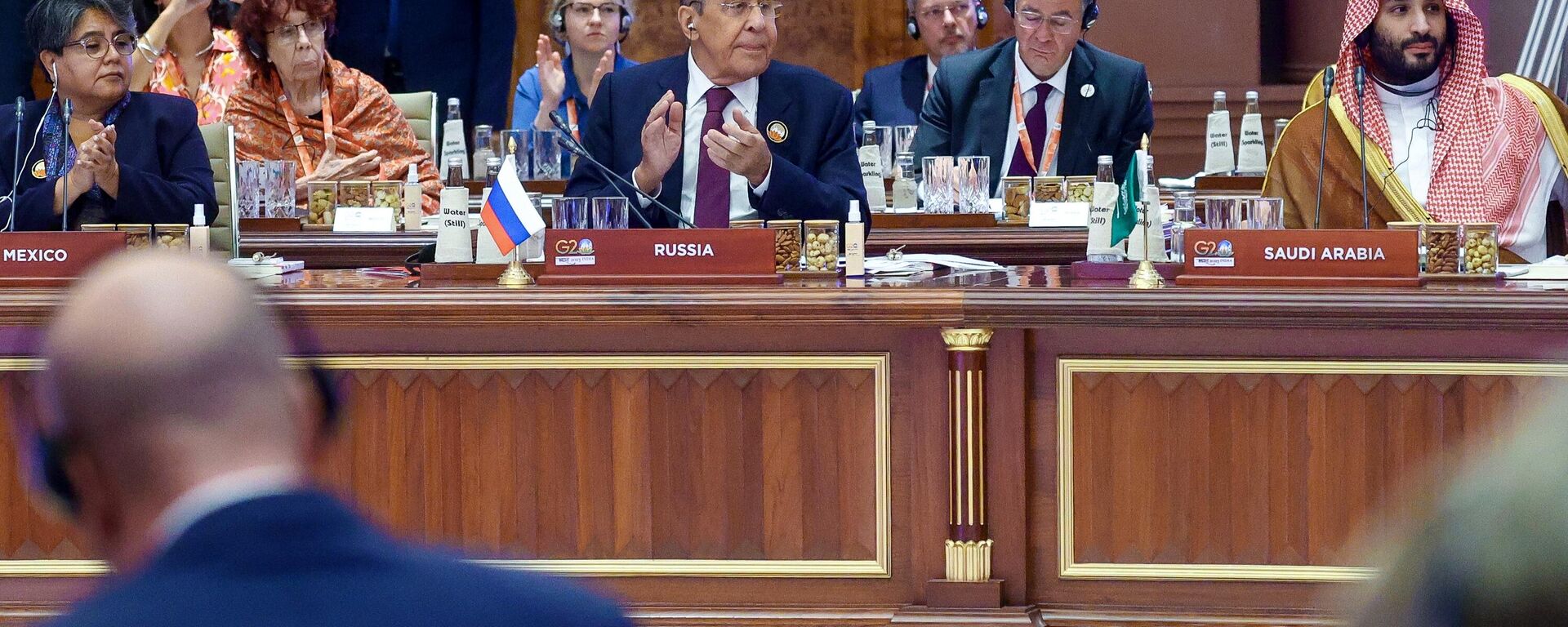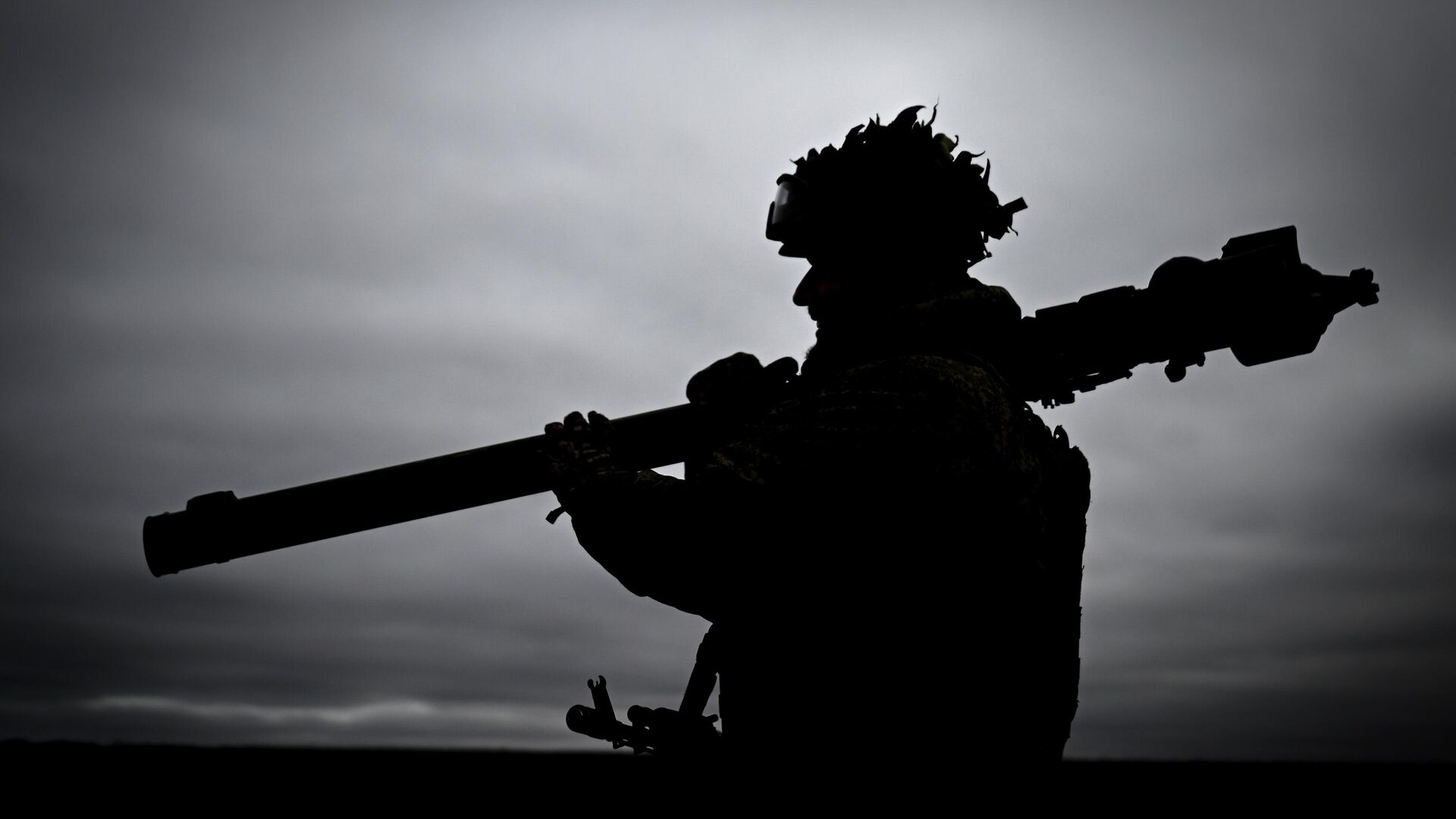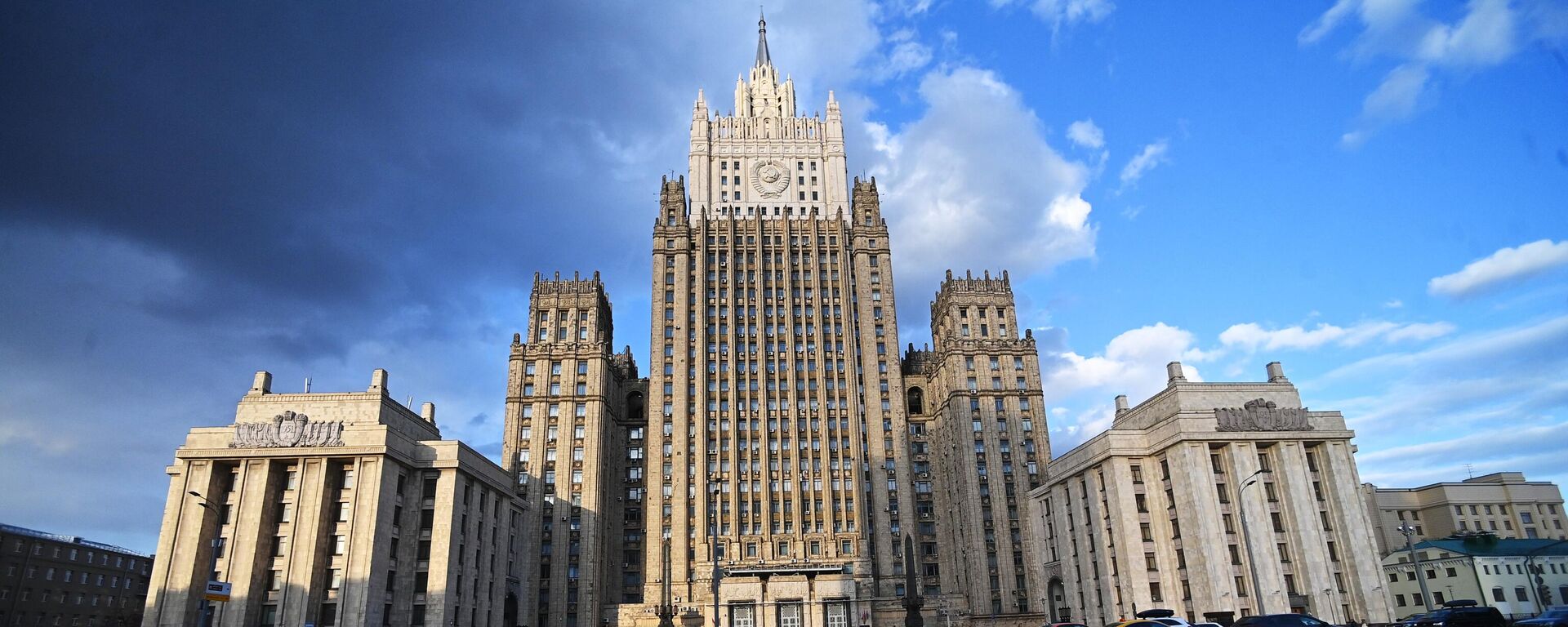https://sputnikglobe.com/20240421/ukraine-frontline-of-wests-much-larger-conflict-with-adversaries-like-russia-china-1118042685.html
Ukraine 'Frontline' of West's 'Much Larger Conflict' With Adversaries Like Russia, China
Ukraine 'Frontline' of West's 'Much Larger Conflict' With Adversaries Like Russia, China
Sputnik International
The ongoing conflagration in Ukraine is the “frontline of a much larger conflict,” according to British journalist Gideon Rachman writing for the Financial Times.
2024-04-21T17:00+0000
2024-04-21T17:00+0000
2024-04-21T17:00+0000
world
ukraine
russia
ukraine crisis
proxy war
nato
north korea
taiwan
iran-israel row
https://cdn1.img.sputnikglobe.com/img/07e8/04/15/1118043366_0:161:3071:1888_1920x0_80_0_0_b0372510310a19478242e318a006b7d7.jpg
The ongoing conflagration in Ukraine is the “frontline of a much larger conflict,” according to British journalist Gideon Rachman writing for the Financial Times.The United States and its Western allies perceive Russia, along with China, Iran and North Korea “as an axis of adversaries,” he stressed.That explains why the US House of Representatives put aside months of bitter wrangling and voted to approve $61bn in new military aid for Ukraine, where NATO is waging its proxy war against Russia.The 311-112 vote in the House offers a “clear sense of how America and its key allies in Europe and Asia now see the world,” added the columnist.The vote to provide supplementary Ukraine aid comes as Europe’s military industries struggle to ramp up production and investments to prop up Ukraine even at huge cost to their own defense and stockpiles.The billions are intended as “push back” against Moscow, Beijing, Tehran and Pyongyang – all four of which US General Chris Cavoli, Commander of United States European Command, described as an “axis of adversaries” in a statement to the US Senate Armed services Committee on April 11.In that same report, Cavoli argued that Russia is “on track to command the largest military on the continent and a defense industrial complex capable of generating substantial amounts of ammunition and materiel in support of large scale combat operations.”Russia “continues to display a resilient economy and an ability to withstand sanctions and export controls," lamented the US general. Indeed, the International Monetary Fund (IMF) has forecast that Russia’s GDP will grow by 2.6 percent in 2024.Cavoli earlier told Congress amid the then-stalled vote on Ukraine aid that Russia “represents a chronic threat” and was forming “interlocking strategic partnerships” with China, North Korea and Iran.While the “threat” narrative deployed by the Pentagon is reminiscent of the “axis of evil” moniker used 2002 by George W. Bush in reference to Iraq, Iran and North Korea, said the journalist, the current level of cooperation between Russia, China, Iran and North Korea allegedly warrants use of the phrase. According to Rachman, that is why the US and its allies are “supporting countries that are in the line of fire of the axis of adversaries," specifically “Ukraine, Israel and Taiwan.”What the British journalist wrote in the FT about the Ukraine conflict being part of a "much larger" picture is hardly an eye-opener.Kiev's neo-Nazi regime, pumped to the hilt with NATO weapons, has long become a tool used to confront Russia, its existential security and human values. Moscow would agree with Cavoli's assessment that Russia has used diplomatic clout to “to challenge the existing order.”The proxy conflict in Ukraine has become a reflection of the global geopolitical battleground, where Russia, its partners in BRICS and the Global South, are pushing forward the new, multi-polar world order.Meanwhile the US has been doing what it does best: cobbling together militarized alliances that only serve to stoke tensions to dangerously new highs. Washington has been militarizing both Taiwan and the Philippines under the pretext of China's possible "invasion" of Taiwan, viewed by Beijing as its inalienable territory.In addition, an Army Pacific spokesperson told Sputnik that the United States is on track to deploy a medium-range missile system in the Asia-Pacific region by the end of this year. That, coupled with numerous large and provocative joint US drills with Japan, Australia, Philippines have been called out by China and Russia as seeking to expand NATO into other regions of the world.The Democratic People’s Republic of Korea has been forced to dramatically ramp up its intercontinental ballistic missile (ICBM) tests in the face of constant US provocations.The current dramatic escalation of the Iran-Israel confrontation clearly demonstrated that Washington will eagerly take Tel Aviv's side despite the threat of dangerous regional spillover.The West's belligerent statements about Russia and its partners reflect an understanding of the ongoing formation of a new and just world order, Russian Foreign Minister Sergey Lavrov said earlier this month."The escalation of this theme of Russia's [strategic] defeat, the emphasis on the existential significance of this defeat for the future of the West reflects not so much a bellicose mood as agony and hysteria," Lavrov said in an interview with Russian radio stations Sputnik, Komsomolskaya Pravda and Govorit Moskva.
https://sputnikglobe.com/20240421/us-pumping-ukraine-with-weapons-to-protract-war-up-till-last-ukrainian---moscow-1118039648.html
https://sputnikglobe.com/20230909/g20-split-over-ukraine-sign-of-battle-between-us-unipolarity-rising-multipolar-world-order-1113241211.html
ukraine
russia
north korea
taiwan
Sputnik International
feedback@sputniknews.com
+74956456601
MIA „Rossiya Segodnya“
2024
News
en_EN
Sputnik International
feedback@sputniknews.com
+74956456601
MIA „Rossiya Segodnya“
Sputnik International
feedback@sputniknews.com
+74956456601
MIA „Rossiya Segodnya“
ukrainian lives, fighting russia, united states, pumping ukraine with weapons, nato's proxy war against russia in ukraine, russia is building multipolar word order, russia, brics, global south support new multipolar world order, the end of us-driven unipolar world order, west's fear of loss of hegemony,
ukrainian lives, fighting russia, united states, pumping ukraine with weapons, nato's proxy war against russia in ukraine, russia is building multipolar word order, russia, brics, global south support new multipolar world order, the end of us-driven unipolar world order, west's fear of loss of hegemony,
Ukraine 'Frontline' of West's 'Much Larger Conflict' With Adversaries Like Russia, China
Escalated rhetoric about the need for Russia's "strategic defeat" is a sign of the West's fear of loss of hegemony, attempts to reassert the dominance of the US, Russian Foreign Minister Sergey Lavrov said recently. He added that Moscow was not frightened by such talk, and together with its partners would build a new and just world order.
The ongoing
conflagration in Ukraine is the “
frontline of a much larger conflict,” according to British journalist Gideon Rachman writing for the
Financial Times.
The United States and its Western allies perceive Russia, along with China, Iran and
North Korea “
as an axis of adversaries,” he stressed.
That explains why the US House of Representatives put aside months of bitter wrangling and
voted to approve $61bn in new military aid for Ukraine, where NATO is waging its proxy war against Russia.
The 311-112 vote
in the House offers a “
clear sense of how America and its key allies in Europe and Asia now see the world,” added the columnist.
The vote to provide supplementary Ukraine aid comes as Europe’s military industries struggle
to ramp up production and investments to prop up Ukraine even
at huge cost to their own defense and stockpiles.The billions are intended as “push back” against Moscow, Beijing, Tehran and Pyongyang – all four of which US General Chris Cavoli, Commander of United States European Command, described as an “axis of adversaries” in a statement to the US Senate Armed services Committee on April 11.
In that same report, Cavoli argued that Russia is “on track to command the largest military on the continent and a defense industrial complex capable of generating substantial amounts of ammunition and materiel in support of large scale combat operations.”
Russia “
continues to display a resilient economy and an ability to withstand sanctions and export controls," lamented the US general. Indeed, the International Monetary Fund (IMF) has forecast that Russia’s GDP will grow by 2.6 percent in 2024.
Cavoli earlier told Congress amid the then-stalled vote on Ukraine aid that Russia “
represents a chronic threat” and was forming “
interlocking strategic partnerships”
with China, North Korea and Iran.
While the “
threat” narrative deployed by the Pentagon is reminiscent of the “
axis of evil” moniker used 2002 by George W. Bush in reference to Iraq, Iran and North Korea, said the journalist, the current level of cooperation between Russia, China, Iran and North Korea allegedly
warrants use of the phrase. According to Rachman, that is why the
US and its allies are “
supporting countries that are in the line of fire of the axis of adversaries," specifically “
Ukraine, Israel and Taiwan.”
What the British journalist wrote in the FT about the Ukraine conflict being part of a "much larger" picture is hardly an eye-opener.
Kiev's
neo-Nazi regime, pumped to the hilt with NATO weapons, has long become a tool used to confront Russia, its existential security and human values. Moscow would agree with Cavoli's assessment that Russia has used diplomatic clout to “
to challenge the existing order.”
The proxy conflict in Ukraine has become a reflection of the global geopolitical battleground, where Russia, its
partners in BRICS and the Global South, are pushing forward the new,
multi-polar world order.
Meanwhile the US has been doing what it does best: cobbling together
militarized alliances that only serve to stoke tensions to dangerously new highs. Washington has been
militarizing both Taiwan and the Philippines under the pretext of China's possible "invasion" of Taiwan, viewed by Beijing as its inalienable territory.
In addition, an Army Pacific spokesperson told
Sputnik that the United States is on track to deploy a
medium-range missile system in the Asia-Pacific region by the end of this year. That, coupled with numerous large and provocative joint US drills with Japan, Australia, Philippines have been
called out by China and Russia as seeking to
expand NATO into other regions of the world.The Democratic People’s Republic of Korea has been
forced to dramatically ramp up its intercontinental ballistic missile (ICBM) tests
in the face of constant US provocations.
The
current dramatic escalation of the Iran-Israel confrontation clearly demonstrated that Washington will eagerly take Tel Aviv's side despite the threat of dangerous regional spillover.
The West's belligerent statements about Russia and its partners reflect an understanding of the ongoing formation of a new and just world order, Russian Foreign Minister Sergey Lavrov
said earlier this month."
The escalation of this theme of Russia's [strategic] defeat, the emphasis on the existential significance of this defeat for the future of the West reflects not so much a bellicose mood as agony and hysteria," Lavrov said in an interview with Russian radio stations Sputnik, Komsomolskaya Pravda and Govorit Moskva.

9 September 2023, 19:36 GMT




